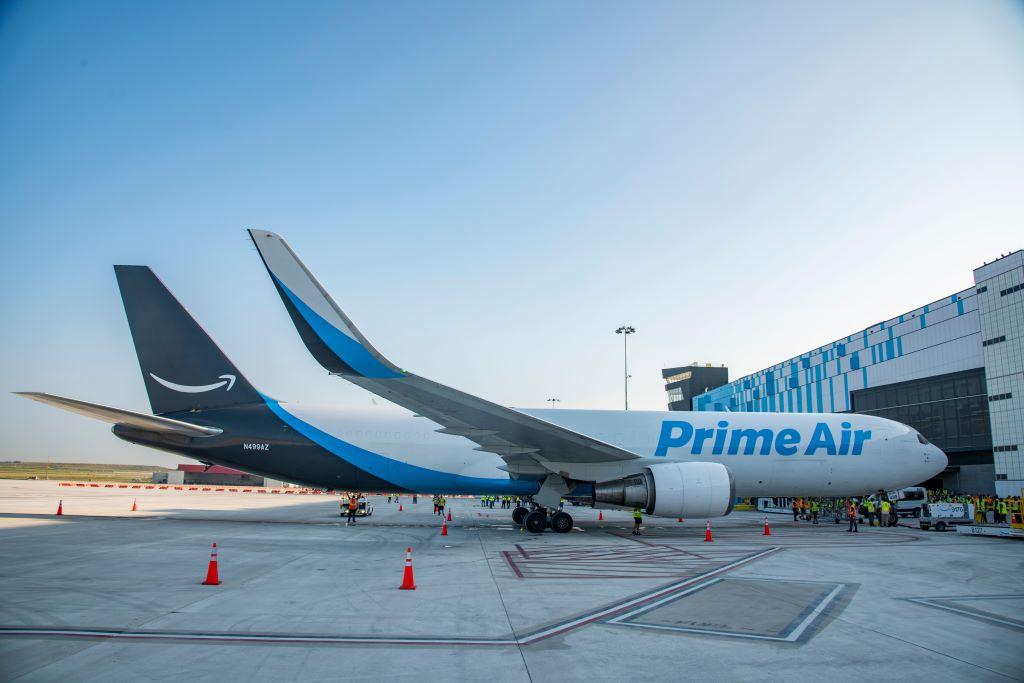
Freighter conversion companies and air cargo operators continue to do brisk business on the back of a surge in e-commerce and depressed bellyhold capacity on passenger flights.
This week a report noted that Amazon Air’s flight activity had grown by 17% in the past six months, to 164 flights per day concentrated in North America.
This was helped by the addition of 14 aircraft, taking the Amazon Air fleet to 73 aircraft by Aug. 20.
The ‘Amazon Air Brief’ report also predicted that the airline would grow to more than 80 aircraft by early 2022, with the e-commerce giant adding flexibility via the addition of ATR turboprop freighters to it existing fleet of Boeing 767 and 737 cargo aircraft.
Most of that fleet will focus on the U.S. market, but other operators see opportunities for long-haul cargo connection.
This week, Pennsylvania-based Eastern Airlines announced plans acquire 35 Boeing 777s for conversion to service the Asia-North America e-commerce market via a new subsidiary, Eastern Air Cargo.
Incumbent U.S. cargo carrier Atlas Air also sees strong potential in this market, and this signaled its intention to develop a joint venture MRO facility in Seoul, South Korea, to support its widebody maintenance needs.
“This facility at Incheon Airport will be able to accommodate multiple widebody aircraft at the same time, enabling the facility to contribute to the growth of airfreight and e-commerce on a global scale as [Incheon airport] expands its role in the MRO aviation industry,” said Soon-Suk Paik, president of Sharp Technics K, Atlas’s partner in the project.
The facility is expected to open in 2025.





